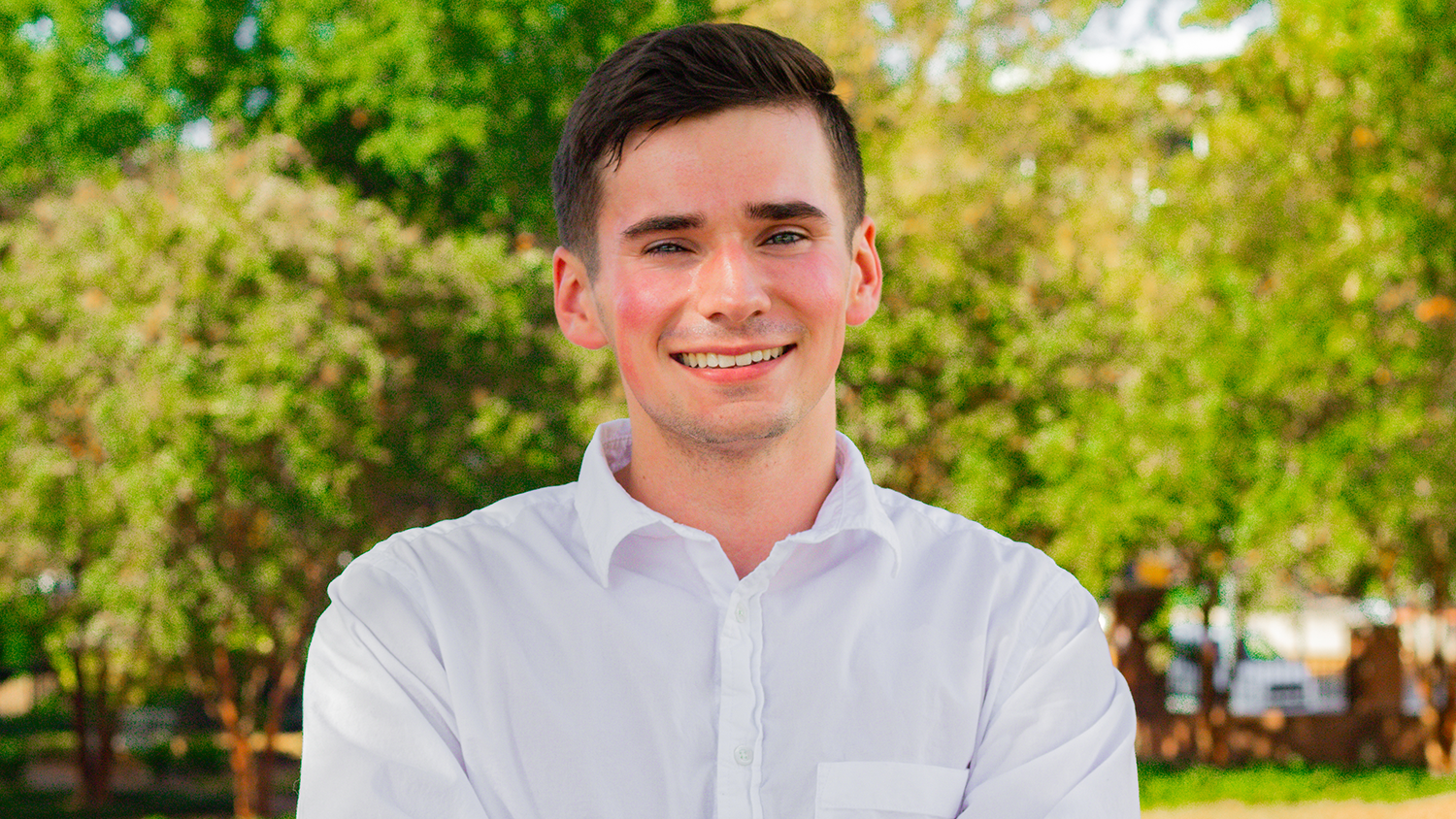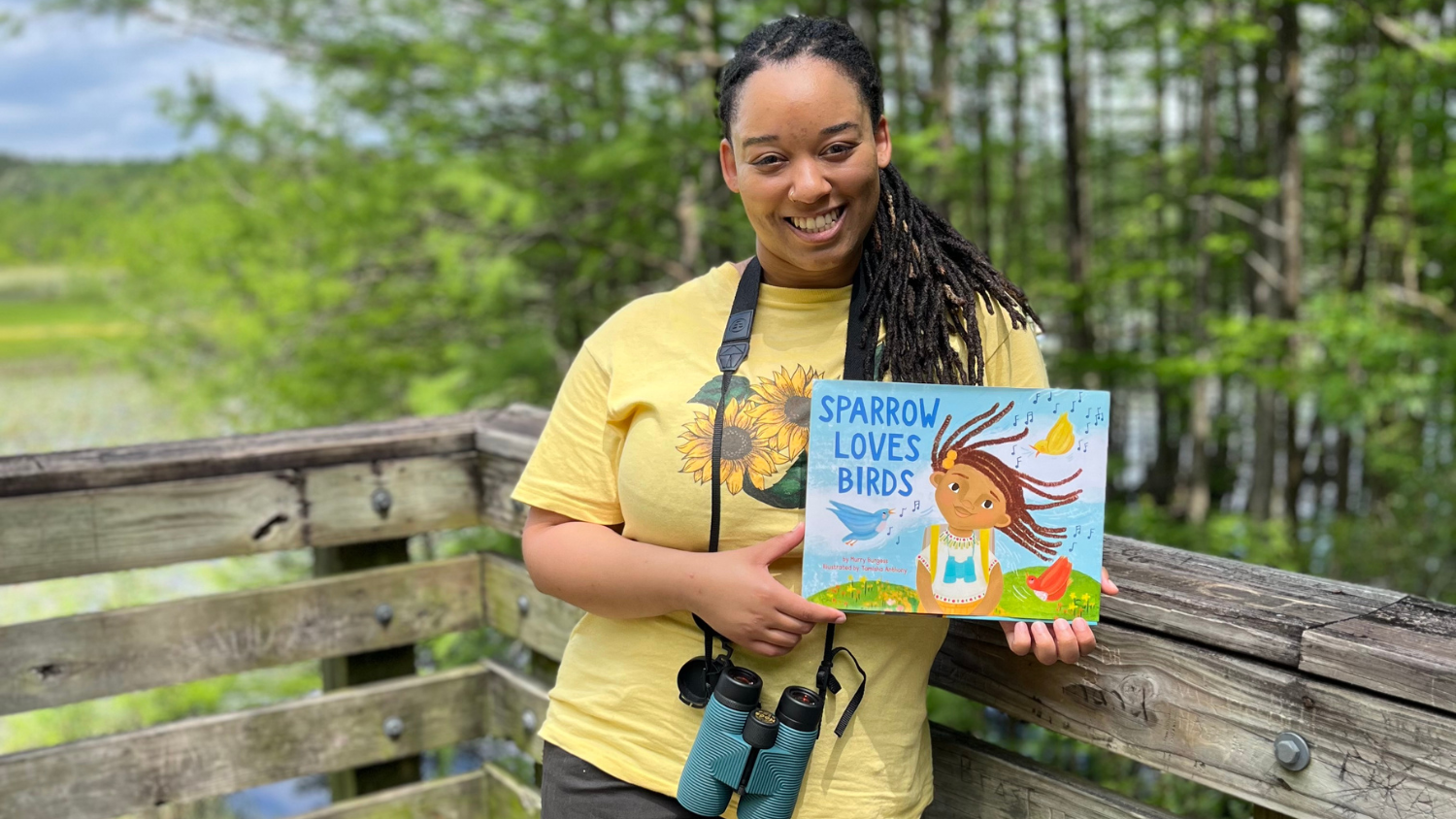Chase Carey ’23 Looks Back to Move Forward

It’s been only a semester since Chase Carey became one of only 116 first-year Doctorate of Veterinary Medicine (DVM) candidates at the College of Veterinary Medicine, but this is not the beginning of his journey at NC State. In fact, it is the continuation of his undergraduate accomplishments toward becoming a wildlife veterinarian.
Carey graduated from the College of Natural Resources in May of 2023 with a Bachelor of Science in fisheries, wildlife and conservation biology, with a pre-veterinary concentration and an environmental science minor.
During his time at NC State, he was president of the Leopold Wildlife Club, participated in the Wildlife Management and Conservation in South Africa study abroad program, was part of the University Scholars Program and published a research paper that earned him the honor of becoming the University Honors Program’s Portz Scholar Nominee for 2023.
The National Collegiate Honors Council (NCHC) is an educational organization that unites over 900 honors colleges and programs from across the country. They provide resources, connections and professional development for over 330,000 honors students, faculty and staff.
The NCHC Portz Scholars are a selected group of four students from across the nation. Each year, institutions that are members of the NCHC are invited to select one undergraduate student’s work for nomination.
Carey’s work was innovative and conclusive, making it the standout choice to receive the Portz nomination from NC State’s Honors Program. His research used camera traps to catalog over 2,000 image sequences of wild turkeys over the course of three years. Carey then utilized this information to better understand how hunting seasons can disrupt breeding patterns.
Roland Kays, research professor for NC State’s Department of Forestry and Environmental Resources and head of the Biodiversity Research Lab at the NC Museum of Natural Resources, was Carey’s faculty mentor throughout his two years of research. Kays spoke highly of Carey, saying “Chase is one of the most motivated and productive undergraduate students I have worked with.”
He continued to describe the dedication with which Carey pursued his research, “He was diligent in this monotonous work and completed it in a timely fashion … His presentation was outstanding, showing he has skills in communication, as well as analysis.”
When asked about his undergraduate research, Carey said, “I wasn’t interested in undergraduate research at first.”
However, beginning in his sophomore year, his mindset, and the trajectory of his college experience, quickly changed.
Carey described his work as personally transformative, saying “first and foremost, it definitely humbled me… even if I knew everything from the beginning, I would do it all again.”
Unwavering work ethic is a defining theme in Carey’s life, something that is not only reflected in his commitment to quality research that ended with him being lead author on a paper that he “didn’t even know would [have] the end goal of publication,” but also in his willingness to embrace interdisciplinary perspectives.
When asked about his future goals, Carey shared that he intends to pursue a Ph.D. or master’s degree after graduating from the College of Veterinary Medicine. For his intended field, Carey is seeking to obtain one of only less than 100 wildlife veterinarian jobs currently available in the United States. This undoubtedly stems from the merging of his passion for caring for animals and sustainability.
“As an undergraduate, I did a lot of work with biologists,” Carey said. “I was the only one to apply to vet school. A lot of my classmates that want to do zoo or wildlife medicine, they just want to work in zoos. But I think we need more vets that have a background in wildlife management … we need more people with working knowledge of what wildlife biology in the field looks like.”
Carey intends to pave the way, with the overarching goal of doing his part to preserve wildlife for the next generation. His “you’ve got to be the person that’s going to do your part” mindset is a representation of the values that he holds, many of which are focused on contributing positively to his community.
“I believe that I’m at vet school for a reason and I just feel like part of my purpose of being there is being an encouragement to my classmates, helping them and supporting them and their mental health through the next four years.”
Not only is Carey focused on being a team player, but he is continuously seeking to evolve his mindset.
Of the Honors Program, he shared, “One of the main things I took away from the Scholars Program is being more open-minded and willing to put yourself in uncomfortable or unfamiliar situations… to learn while challenging my misconceptions.”
He continued to describe his experiences, saying, “Being able to go to those seminars and hear from a whole bunch of people about different things, that’s truly what college is about — ultimately, the original intent of sharing ideas and learning about new people.”
Carey implores that current and future Honors Program students be an active part of their community, accept the ups and downs of life with a gracious attitude, and remember to enjoy the experience.
“You can always try something and change your mind later,” he said. “If you turn down an opportunity you may regret it later on. I think putting yourself outside of your comfort zone is crucial to growing as a person, as a learner… It’s always fun to do something unique, to do something you find purpose in. If it’s something you see purpose and enjoyment in, I think you should just be confident and go for it.”
This article was originally published by Academic and Student Affairs News.
- Categories:


